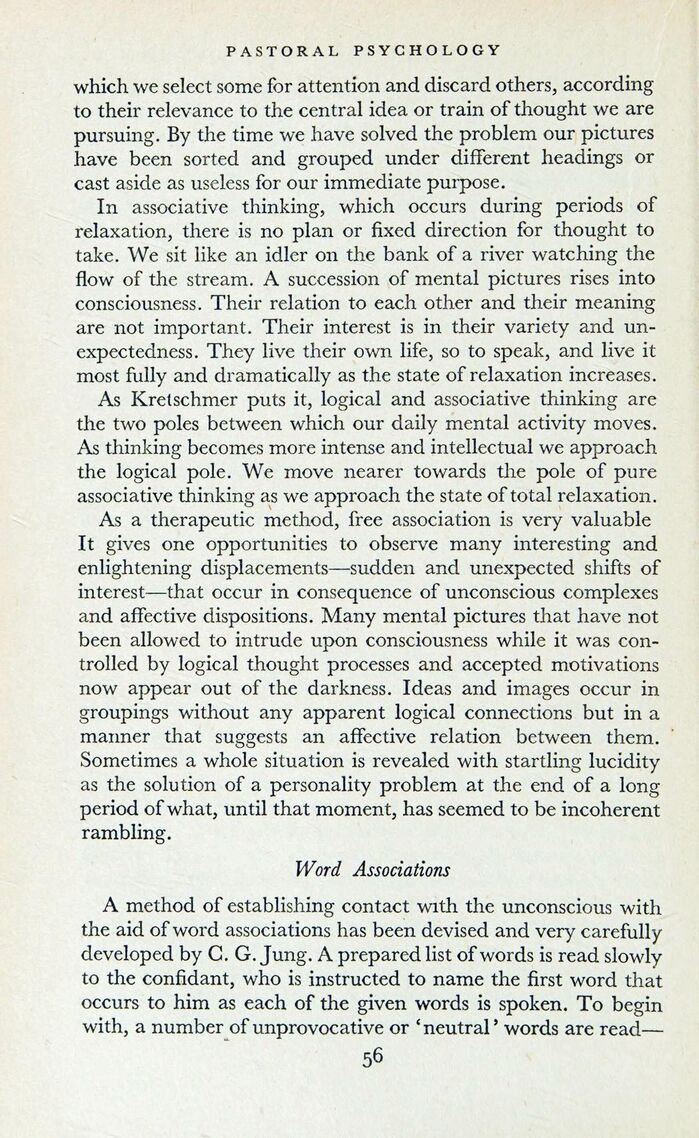
Full resolution (JPEG) - On this page / på denna sida - Part 1. The Responsibilities and Limitations of the Task - 5. The Care of Souls and the Unconscious - Free Association - Word Associations

<< prev. page << föreg. sida << >> nästa sida >> next page >>
Below is the raw OCR text
from the above scanned image.
Do you see an error? Proofread the page now!
Här nedan syns maskintolkade texten från faksimilbilden ovan.
Ser du något fel? Korrekturläs sidan nu!
This page has never been proofread. / Denna sida har aldrig korrekturlästs.
PASTORAL PSYCHOLOGY
which we select some for attention and discard others, according
to their relevance to the central idea or train of thought we are
pursuing. By the time we have solved the problem our pictures
have been sorted and grouped under different headings or
cast aside as useless for our immediate purpose.
In associative thinking, which occurs during periods of
relaxation, there is no plan or fixed direction for thought to
take. We sit like an idler on the bank of a river watching the
flow of the stream. A succession of mental pictures rises into
consciousness. Their relation to each other and their meaning
are not important. Their interest is in their variety and
unexpectedness. They live their own life, so to speak, and live it
most fully and dramatically as the state of relaxation increases.
As Kretschmer puts it, logical and associative thinking are
the two poles between which our daily mental activity moves.
As thinking becomes more intense and intellectual we approach
the logical pole. We move nearer towards the pole of pure
associative thinking as we approach the state of total relaxation.
As a therapeutic method, free association is very valuable
It gives one opportunities to observe many interesting and
enlightening displacements—sudden and unexpected shifts of
interest—that occur in consequence of unconscious complexes
and affective dispositions. Many mental pictures that have not
been allowed to intrude upon consciousness while it was
controlled by logical thought processes and accepted motivations
now appear out of the darkness. Ideas and images occur in
groupings without any apparent logical connections but in a
manner that suggests an affective relation between them. `
Sometimes a whole situation is revealed with startling lucidity
as the solution of a personality problem at the end of a long
period of what, until that moment, has seemed to be incoherent
rambling.
Word Associations
A method of establishing contact with the unconscious with
the aid of word associations has been devised and very carefully
developed by C. G. Jung. A prepared list of words is read slowly
to the confidant, who is instructed to name the first word that
occurs to him as each of the given words is spoken. To begin
with, a number of unprovocative or ‘neutral’ words are read—
56
<< prev. page << föreg. sida << >> nästa sida >> next page >>